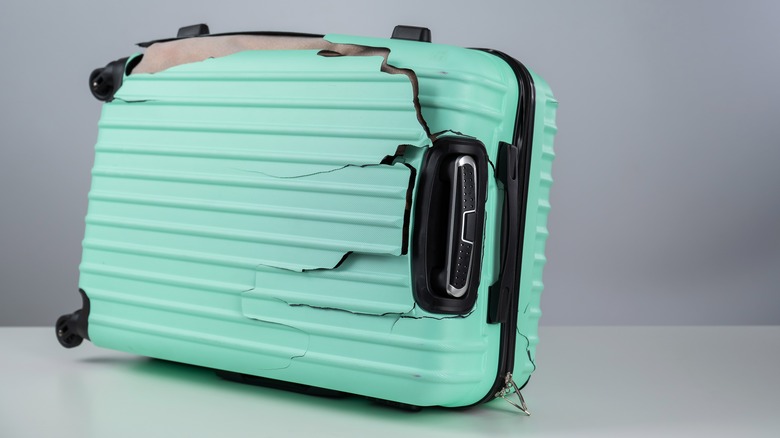Travel Insurance: Should You Invest Or Is It A Scam?
Anyone who has recently shopped for a vacation can attest that high fuel costs, a shortage of workers, and pent-up demand following the COVID-19 pandemic have conspired to make travel an expensive endeavor, especially if you're venturing internationally. Consider what might happen if you were forced to cancel that trip at the last minute due to an emergency. Travel insurance definitely isn't a scam and can help protect the value of your next trip if you're unable to go due to extenuating circumstances or something unforeseen happens while you're already on the vacation. That said, certain existing relationships — like travel credit cards — may provide some level of protection and not all trips are good candidates for purchasing insurance.
For instance, hotel reservations are often refundable until the last minute unless you book the very lowest non-cancelable rates (that lack of flexibility might not be worth the small savings). Therefore, a hotel stay within driving distance or paired with a very cheap flight might not be worth insuring, but other types of travel like cruises are much more costly and the option to change or cancel plans disappears far in advance.
An additional consideration is medical insurance while traveling abroad, which may only be covered on a limited basis — or not at all — by your regular health insurance policy. Travel-specific policies are available that can act as primary medical insurance abroad in the event of an emergency, including a medical evacuation, are available separately or bundled together with trip insurance.
If you need to use it, the return on investment is high
Travel insurance protects you against the loss of prepaid, nonrefundable trip costs if you need to cancel for a reason that's covered by the policy. Those reasons can include acts of terrorism, weather events, sickness or death of travelers or their family members, loss of employment, and even automobile accidents that occur right before the trip starts. Most of these reasons are also valid if you've already departed on the trip, but need to cut it short due to dangerous circumstances or an emergency back home.
While most policies don't allow cancellation if you simply change your mind about taking the trip, there are some that do. Known as "cancel for any reason" (CFAR) policies, buyers can expect to pay a significant premium for the privilege, as well as only recovering approximately 75% of the cost of the trip in the event of voluntary cancellation. According to Squaremouth, a site that compares and sells travel insurance from multiple providers, the average policy cost $266, while the average claim paid out $2,157. That's a pretty good return on investment if you wind up needing to utilize the coverage.
Besides outright trip cancellation or termination, travel insurance also covers smaller pitfalls that can occur once a trip has already started. Per Squaremouth, travel delays were the most commonly paid claim in 2022. For example, if a flight is delayed due to weather or mechanical reasons, the coverage will pay for travelers' hotel and food expenses during the wait. Another common claim among policyholders is compensation for luggage that is lost or delayed.
It pays to shop around
Many travel providers such as airlines and cruise lines may offer travel insurance during the checkout process, but travelers will frequently find cheaper and/or better coverage by seeking out their own policies. For example, a policy offered by a cruise line might not cover flights to and from the port or a hotel stay before or after the cruise, if those ancillary items are booked separately. Additionally, a lower price might be found with some searching, rather than impulsively purchasing from the travel provider.
Finally, you might already be covered to some extent by your credit cards and existing home or renters insurance policy. One of the benefits of quality travel-focused credit cards like the Chase Sapphire Reserve is automatic insurance against trip cancellation, interruption, or delays, provided that you use that credit card to pay for the travel to begin with.
In that case, you may be able to forego travel insurance or purchase a medical-only policy. Still, it's always prudent to check coverage limitations to verify that the credit card-provided insurance is sufficient for your needs. Similarly, your regular homeowners insurance may compensate you for theft or loss of your belongings while traveling, further negating the need for a supplemental travel insurance policy.


